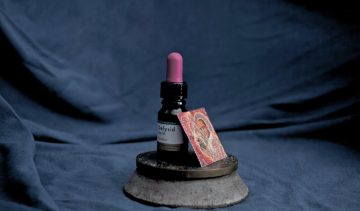Can you not get rid of your migraine, stuffiness, heart palpitations, itching, insomnia or a cold? Would you be surprised if these complaints would decrease if you start avoiding histamine? In this article you will get to know more about this substance, what the consequences of too much histamine can be and what you can do about it.
What is histamine?
Histamine is a substance that is formed by our own body and it is also found in our diet. Histamine has a number of useful functions. It plays a role in breathing, blood circulation and controlling body temperature. So we cannot do without histamine. However, too much of histamine can cause different complaints, such as headache, asthmatic complaints, colds, itching and insomnia.
How can you have too much histamine?
Histamine is broken down by the DAO enzyme. If this enzyme does not work well, your histamine level will remain high. The reduced effect of the enzymes can be caused by: stress, infection, use of medication, imbalance in your liver or by a disturbed intestinal flora.
Histamine and nutrition
Foods that contain a lot of histamine are: fish, such as herring, mackerel and tuna, tomato, avocado, (old) cheese, red wine, beer, shellfish, spinach, sausage, chocolate, fermented products and food that has been preserved for a long time.
Histamine is also released through food stimulates the body to release more histamine. These are the so-called “histamine liberators”, like strawberries, pineapples, figs, liquorice, ginger, cinnamon, curry, coriander, pepper, vanilla, legumes, peanuts and pork.
Consequences of high histamine levels
The complaints vary widely and unfortunately there are quite a few: redness in the face and on the body, runny nose, itching, warm limbs, internal and external inflammatory complaints, headache, migraine, stomach and intestinal problems, stuffiness, palpitations, low blood pressure, fluid retention (edema) concentration problems and depression. In addition, an excess of histamine can cause anxiety and panic attacks.
What can you do?
Get yourself tested for the histamine degrading enzyme DAO. If you have a deficiency of this enzyme, you can take DAO supplements. You can also do a stool examination, because a large part of the cause can be in the intestines.
There are a number of things that you can do yourself to lower your histamine levels.
- Eat varied, fresh and unprocessed food. I know, it’s going to be tricky, because what’s better than wine and cheese? But look at what effect it has on your body and mind when you avoid food that contains histamine. Try to maintain this low-histamine diet for at least 4 weeks.
- Because stress is a major trigger for the release of histamine, it is important to ensure adequate relaxation. Put your phone away take out a book, go for a workout, meet friends or take a long walk.
- Creams, makeup, shampoo, shower gel can also add to this. Choose products that are as natural as possible.
NiceDay
Use the NiceDay diary to note what you eat, drink and what possible stress factors are. Try to avoid food and stress triggers and pay attention to your physical and mental reaction. Good luck!











